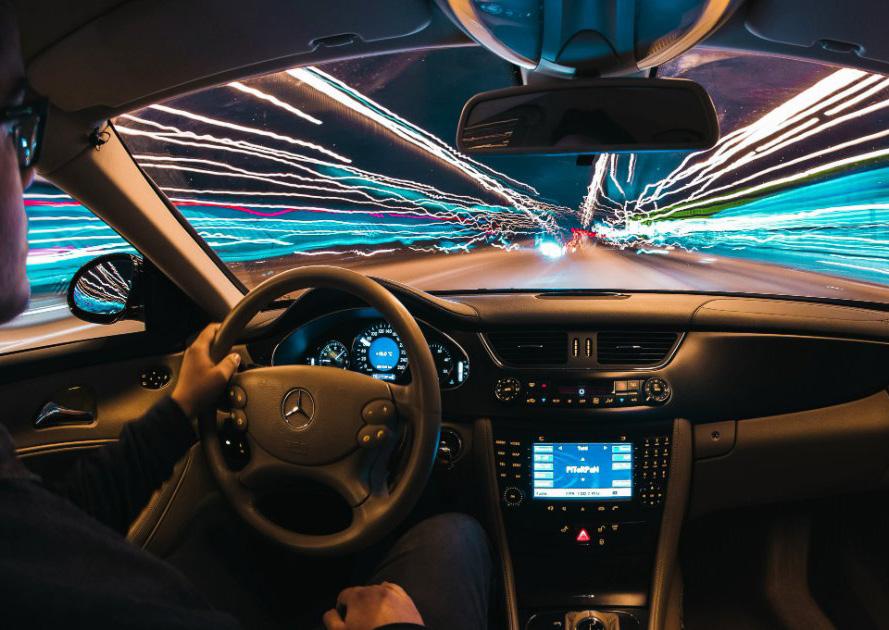
4 minute read
How will AI be transforming the automotive industry in 2023?
By Arun Krishnamurthi
The automotive industry is undergoing a radical transformation driven by rapid technological advancements and heightened market competition. As autonomous driving, cloud computing, electric vehicles, and networking become more intertwined with the industry; consumers can now enjoy a more enriched experience. So how can industry players leverage the latest technologies in this new era to stay ahead of the curve?
Advertisement
THE OUTSET
Technology has been on a continual upswing since it arrived in the mid-twentieth century and will only become more advantageous in the forthcoming years. We have seen immense progress over the last ten years since its arrival due to the unveiling of new and advanced technologies that have propelled us forward and bettered people’s lives all over. Furthermore, this generation’s curiosity surrounding digital technology and artificial intelligence has led to thoughtprovoking forays into ingenuity and opportunity, providing myriad benefits to society. This is a boon for society, and we eagerly anticipate seeing what the upcoming decades have for us.
Without a doubt, Artificial Intelligence is becoming an increasingly important part of the automotive industry, and the reasons behind this are increasing every day. The market for automotive artificial intelligence was worth USD 2.54 billion in 2021 and is anticipated to expand at a CAGR of 21.6% from 2022 to 2030. The rising demand for autonomous vehicles, the favourable application of AI in traffic management, advanced automotive solutions, and government initiatives are the main drivers of the worldwide automotive AI market.
AI is taking cars to a level where many thoughts were unattainable until recently - from diagnosing
maintenance issues in advance to rendering the roads safer for everyone. As a result, automotive giants are taking advantage of AI to streamline their processes and enhance security while at the same time minimizing costs and manufacturing time. AI plays such a vital role that it’s formidable to envision car manufacturing without it.
Considerable use-cases of AI used in car manufacturing:
-Design: AI is used to help car manufacturers design efficient and stylish cars.
-Simulation: With Digital Twin - a simulation-based endeavour - manufacturers can reduce time, money, and resources while still meeting their quality standards.
-Data Analytics: The future cars will be continuously monitored and adjusted according to the data they collect, making cars more efficient, safer, and reliable.
-Torque measurement: AI is used to help car manufacturers better understand and predict vehicle torque - a crucial factor in proper car operation.
-Testing: AI is being used to monitor and predict the performance of cars in extreme conditions.
-Safety Features: AI can also be used to enable object detection, lane detection, and pedestrian detection, potentially making roads and highways safer. AI-enabled real-time monitoring can also alert drivers of potential road accidents and advise them of the best courses of action to take to avoid them.
-Self-Driving: Advances in AI technology have made self-driving cars a reality. Several automakers, such as Tesla, Ford, BMW, and Toyota, are already deploying autonomous vehicles in select areas.
-Driver Behaviour Analysis: IoT sensors are installed on the vehicle
to track and analyze the driver’s behaviour. Additionally, these can serve as early warning signs to monitor driver responsiveness and provide a signal to warn them of any unusual behaviour and its potential consequences for the car.
AI: Taking automotive industry an edge above
Automobile companies are swiftly recognizing the importance of integrating Artificial Intelligence into their operations to stay competitive in today’s market. The incredible capabilities of AI in car production are reason alone to make it the new industry standard.
Implementing AI in tracking parts and delivery enables us to achieve higher levels of efficiency and accuracy. This has the desirable effect of leaving more time for people to focus on more critical tasks, thus freeing them up to do what they do best.
AI will be used to map out routes and anticipate traffic lights. Using sensors and cameras, Automotive Vehicles (AVs) can detect obstacles and plan a route around them that is as smooth as possible. This capability will make travelling in congested cities much more accessible.
The Big Role of AI in the Automotive Industry
AI is invaluable for companies in predicting customer behaviour, enabling them to create more detailed customer profiles and render superior services. By leveraging AI, customers can be provided with effective troubleshooting solutions in no time, coupled with tailored recommendations to improve their car ownership experience. Moreover, by tapping into the power of AI, customers can avail of a seamless service experience while also saving time and money - it’s a win-win situation!







